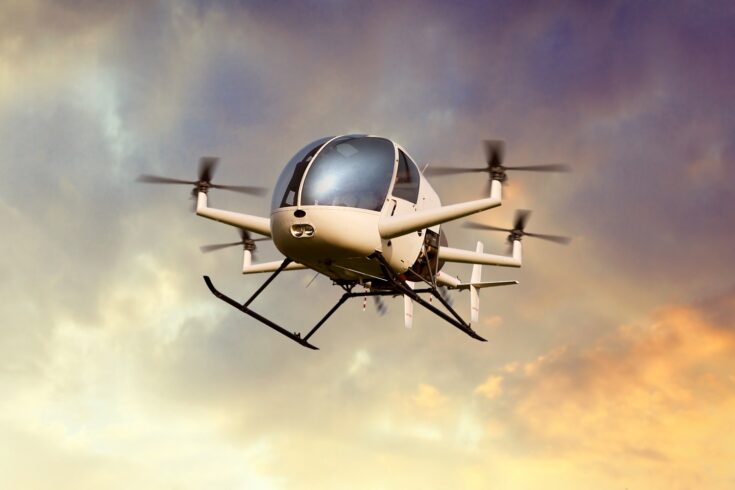New study sets out guidelines, recommendations and use cases for a future aviation system of autonomous and piloted vehicles and technology.
UK Research and Innovation’s Future Flight Challenge (FFC) has today announced the launch of its initial aviation safety framework.
The framework is an in-depth study that sets out guidelines, recommendations and use cases for a future aviation system of autonomous and piloted vehicles and technology.
The report looks at the application of new aviation and vehicle technologies and analyses:
- the key safety management challenges that will apply for infrastructure
- the role of humans
- the management of complex systems across use cases such as:
- drone delivery and inspection
- air mobility across urban and regional areas.
Priorities for the sector
The research is commissioned by the FFC and undertaken by Egis and the University of York.
It gives recommendations for the sector in adopting the framework, including initial priorities for action, which include:
- development of a concept of operations for a future aviation system which includes transitional states
- establishment of target levels of safety for aircraft operations, including specific FFC use cases
- establishment of an aviation system risk baseline made up of both the current risk profile and the future expected risk profile, based upon future concepts of operations
- prioritisation of the issues and recommendations in the report and the establishment of a safety work program in support of overall FFC objectives. This should include, amongst other things, a plan for managing the impacts of complex systems at the governance, management and task or technical layers.
The FFC is funding innovation and greener ways to fly, including all-electric aircraft and drones.
Its aims include advancing technologies to:
- help meet net zero targets
- increase mobility
- reduce congestion
- drive technology investment in the UK.
Society of tomorrow
Gary Cutts, challenge director for the FFC, said:
When it comes to the development of new technologies that will be critical to the society of tomorrow, it’s not simply the technology itself that needs support and research.
Safety and regulation will be critical components of any changes to the aviation sector, whether for autonomous or human use.
We therefore commissioned this in-depth research to consider exactly how the industry, its regulators and wider stakeholders will need to adapt to the safety, risk assessment and legislation needed to manage and monitor the new aviation landscape.
Whether it’s a freight-carrying drone, an urban passenger vehicle or a hybrid-electric aircraft for remote regions, the challenge to provide the necessary infrastructure and control systems will be of paramount importance, such is their impact on the potential success of the future systems.
Our next steps will be to take the evidence of the study to inform any actions required for incorporating safety and regulation further in the work of the FFC and the wider industry.
Richard Derrett-Smith, Egis principal consultant and study lead said:
It has been our privilege to develop this initial safety framework on behalf of the FFC and in partnership with the University of York.
We know from our collective experience and that of the working group who participated in this study that achieving an acceptable level of safety is vital to the success of future aviation in the UK.
The outputs of this study provide direction on the priority actions, and we look forward to supporting the FFC and industry stakeholders with implementing those actions to ensure safety is at the heart of the future aviation system.

